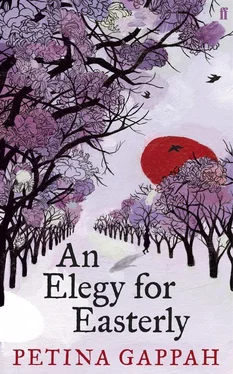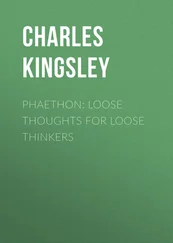Petina Gappah - An Elegy for Easterly
Здесь есть возможность читать онлайн «Petina Gappah - An Elegy for Easterly» весь текст электронной книги совершенно бесплатно (целиком полную версию без сокращений). В некоторых случаях можно слушать аудио, скачать через торрент в формате fb2 и присутствует краткое содержание. Год выпуска: 2009, Издательство: Faber & Faber, Жанр: Современная проза, на английском языке. Описание произведения, (предисловие) а так же отзывы посетителей доступны на портале библиотеки ЛибКат.
- Название:An Elegy for Easterly
- Автор:
- Издательство:Faber & Faber
- Жанр:
- Год:2009
- ISBN:нет данных
- Рейтинг книги:4 / 5. Голосов: 1
-
Избранное:Добавить в избранное
- Отзывы:
-
Ваша оценка:
- 80
- 1
- 2
- 3
- 4
- 5
An Elegy for Easterly: краткое содержание, описание и аннотация
Предлагаем к чтению аннотацию, описание, краткое содержание или предисловие (зависит от того, что написал сам автор книги «An Elegy for Easterly»). Если вы не нашли необходимую информацию о книге — напишите в комментариях, мы постараемся отыскать её.
An Elegy for Easterly — читать онлайн бесплатно полную книгу (весь текст) целиком
Ниже представлен текст книги, разбитый по страницам. Система сохранения места последней прочитанной страницы, позволяет с удобством читать онлайн бесплатно книгу «An Elegy for Easterly», без необходимости каждый раз заново искать на чём Вы остановились. Поставьте закладку, и сможете в любой момент перейти на страницу, на которой закончили чтение.
Интервал:
Закладка:
He smiles often, Rosie’s bridegroom. He smiles when a drunken aunt entertains the guests with a dance that, outside this celebration of sanctioned fornication, could be called obscene. He smiles when an uncle based in Manchester, England, calls on the mobile telephone of his son and sends his congratulations across nine thousand kilometres shortened by Vodafone on his end and Econet on the other. His smile broadens as the son tells the master of ceremonies that the uncle pledges two hundred pounds as a wedding gift; the smile becomes broader still when the master of ceremonies announces that the gift is worth two hundred million dollars on Harare’s parallel market. He smiles and smiles and smiles and his smile reveals the heightened colour of his gums.
The wedding guests sit in the rented marquee from Rooney’s. It is resplendent in the wedding colours chosen by Rosie, cream and buttermilk, with gold to provide the contrast. They chew rice and chicken on the bone and wash it down with mouthfuls of bottled fizzy drinks, beer and an intensive colloquy on Rosie’s bridegroom’s reputation.
This is his second marriage, everyone knows.
He buried one wife already, even Rosie knows.
What Rosie doesn’t know: he also buried two girlfriends, possibly more.
The evidentiary weight of his appearance, circumstantial in isolation, is corroborated not only by the death of one wife and two girlfriends, but by other incidents in the life of Rosie’s bridegroom.
For instance : it is known that he was often in the company of Mercy, now deceased, formerly of Glen View Three, notorious Mercy with men from here to Kuwadzana.
Another thing : he drank nightly at the illegal she-been at Mai Tatenda’s house, with Mai Tatenda who has one Tatenda and no Baba Tatenda, Mai Tatenda who provided her clients with home comforts and then some, Mai Tatenda who was seen only last week, just skin and bones, coughing-coughing and shivering in this sweltering December. One doesn’t want to be unkind of course, they say, but that is what happens to whores who wrap their legs around men that are not their husbands.
And finally, incontrovertibly : Rosie’s bridegroom’s car was seen parked outside the house of a prophet who lives in Muhacha Crescent in Warren Park, he of the hands that can drive out the devil Satan who has chosen to appear as an incurable virus in their midst. This prophet has placed an advert in all the newspapers. He responded to that advert, Rosie’s new husband, he must have, for his car, the silver Toyota Camry that was always in front of Mai Tatenda’s house, was seen outside the house of the prophet.
‘Is any Sick among You,’ the advert says, ‘Let him call for the Elders of the Church; and let them Pray over him, Anointing him with Oil in the Name of the Lord. And the Prayer of Faith shall save the sick, JAMES 5:14–15. Jesus of Nazareth Saves,’ the advert says. ‘Come to have His healing Hands placed upon your Troubled Hearts. All Illnesses Cured. For Nothing Is Too Hard for Yahweh, GENESIS 18:14.’
There is but one disease that drives men to turn their Toyota Camrys, their Mercedes Benzes, Pajeros, BMWs in the direction of Warren Park. There is only one illness that pushes both the well-wheeled and un-wheeled to seek out the prophet. It is the big disease with the little name, the sickness that no one dies of, the disease whose real name is unspoken, the sickness that speaks its presence through the pink redness of lips, the slipperiness of hair, through the whites of the eyes whiter than nature intended.
They are gifted with prophecy, the wedding guests, they look at Rosie’s bridegroom’s lips and in them see Rosie’s fate. She will die first, of course, for that is the pattern, the woman first, and then the man. The woman first, leaving the man to marry again, to marry another woman who will also die first. They will keen loudly at Rosie’s wake; they will fall into each other’s arms. Their first tears shed, they will talk of the manner of her death.
In the public spaces they will say: She just fell sick. Just like that, no warning, nothing. She woke up in the morning; she prepared food for the family. Around eleven she said: My head, my head. And by the time she should have cooked the supper, she was gone. So quickly, they will say. No one can comprehend the speed with which it happened. It burdens the heart, they will say. Where have you heard that a person dies from a headache?
But in the dark corners away from the public spaces they will say: Haiwa , we knew all along. Her death was there in the bright pink lips of her bridegroom, how far did she think it could go? Remember the first wife, remember Mercy, remember Mai Tatenda, remember the two girlfriends, possibly more? How far did she think it would go?
But that day is still far, it is not here, it is not now. Here and now, the wedding guests clap and cheer and sneer as Rosie dances with her new husband. They pass rice and chicken through their own reddened mouths, and complain that there is not enough to eat, not enough to drink. The master of ceremonies cries enko, enko , and the wedding guests dance.
My Cousin-Sister Rambanai
My cousin-sister Rambanai came back from America with two suitcases crammed with too-tight clothes in vivid shades of pink and a new accent. The clothes eventually faded from frequent washes with Cold Power and from hanging in the harshness of the Harare sun, but the accent did not. Her new voice rose and fell in our house as she talked of her life in the States , the problems she had juggling her nine-to-five job with an insurance broker in downtown Dallas and her hectic social life, the leaky fawcet in her duplex . ‘Take this route,’ she said, only she pronounced it rout instead of root . And our housemaid Sisi Dessy said to her friend Memory the housemaid from next door that Rambanai sounded just like someone on television.
As the daughter of my father’s younger brother, my uncle Ba’muniniBa ’Thomas, Rambanai was my sister in Shona, my cousin in English, and in Shonglish, my cousin-sister. Both she and her older brother Thomas lived outside the country but only she came back to bury their father. Instead of coming, Thomas wired seven hundred and fifty pounds through Western Union from Manchester, England where he lived.
‘Five years. Five whole years without coming home, not even to bury a father, heh ,’ said my uncle’s wife, my uncle’s second wife. She was the mother of my twin cousin-brothers Tadiwa and Tadiswa, but not Thomas and Rambanai. ‘Is this the behaviour of a responsible son? Handiye nevanji? Is it not he, as the new head of the household, who is supposed to be here?’
For all that she complained, it was the money that Thomas sent that enabled the family to bury my uncle in the splendour of the Paradise Peace Casket, a gleaming white coffin with golden handles and a gold frame on the surface into which my aunt put a photograph of my uncle in his University of Leeds graduation cap and gown. When VateteMai Mazvita complimented my aunt on the magnificence of the coffin, my aunt blew her nose and swallowed back a sob to say, ‘It is a casket Vatete, not a coffin. A casket .’ She covered her face in her handkerchief, and began again to sob softly into its black folds.
Rambanai had not been particularly close to her father. His forbidding exterior made it impossible for anyone to feel any warmth towards him. When I was a little girl and my uncle’s first wife was alive, she had a picture of Jesus on their living room wall. His limpid blue eyes would follow me everywhere. Under the flowing hair, the all-seeing eyes and the pink and blue robes of Jesus were these words: ‘I am the silent guest at every meal. I am the silent witness to every action. I am the silent listener to every conversation.’ The menace in the words alarmed me and sometimes, after we had visited their house in Mount Pleasant, I woke up screaming that Jesus was in the room and he could hear me breathe. As the picture hung above his favourite seat, I associated the omnipotence of Jesus with Ba’muniniBa ’Thomas, who sat there without talking, never once laughing in all the time that I knew him, only responding with a grunt when we clapped our hands to him in the traditional way and asked after his health at the beginning of every visit.
Читать дальшеИнтервал:
Закладка:
Похожие книги на «An Elegy for Easterly»
Представляем Вашему вниманию похожие книги на «An Elegy for Easterly» списком для выбора. Мы отобрали схожую по названию и смыслу литературу в надежде предоставить читателям больше вариантов отыскать новые, интересные, ещё непрочитанные произведения.
Обсуждение, отзывы о книге «An Elegy for Easterly» и просто собственные мнения читателей. Оставьте ваши комментарии, напишите, что Вы думаете о произведении, его смысле или главных героях. Укажите что конкретно понравилось, а что нет, и почему Вы так считаете.












